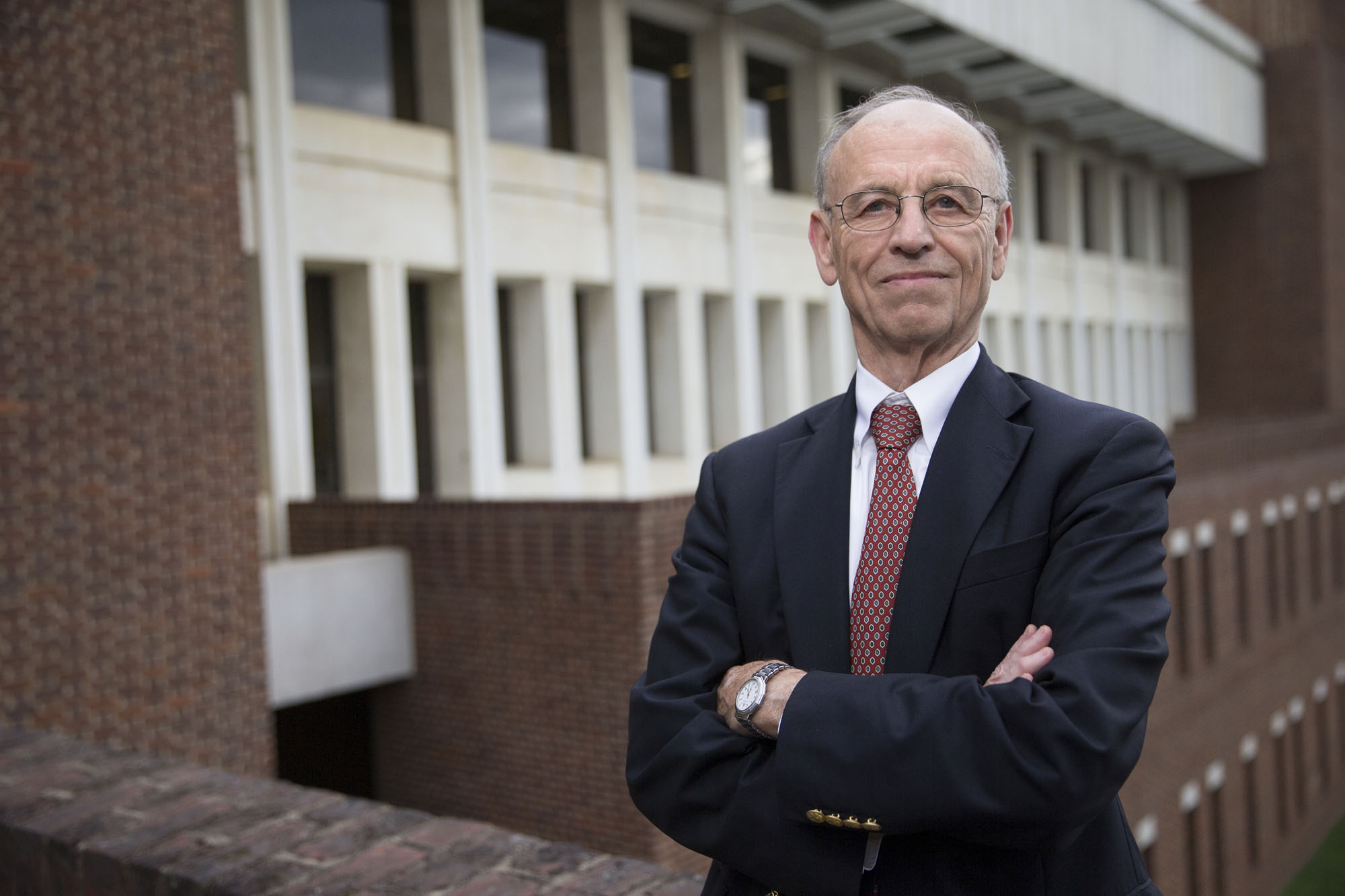In a career spanning nearly half a century, Donald F. Hunt, University Professor of Chemistry and Pathology at the University of Virginia, has been a pioneer in the field of mass spectrometry.
Mass spectrometry is a powerful analytical technique that is used to identify unknown compounds, to quantify known materials and to determine the sequence of amino acid building blocks that define proteins in the human body. Its applications have led to advances in all fields of science, especially immunology, cell signaling, drug development, epigenetics and immunotherapy of cancer.
Hunt, who has published more than 3,500 articles and sent more than 100 former graduate and postdoctoral students into academics and into leading positions in the field of mass spectrometry – in addition to teaching organic chemistry to more than 14,000 premedical students – is widely recognized for developing mass spectrometry instrumentation and methods for amino acid sequence analysis of the several hundred thousand proteins in the human body.
“Don Hunt has had a huge impact on the field of proteomics and mass spectrometry and our growing understanding of protein structure and sequencing,” said Ian Harrison, professor of chemistry and director of graduate studies in U.Va.’s Department of Chemistry. “And his contribution to our department, through his research programs and his impact on students is highly significant.”
Hunt came to U.Va. in 1968 and became a pioneer in developing techniques for using mass spectrometry to study organic molecules of biological interest. Mass spectrometry had its roots in physical chemistry, but Hunt and a few other pioneers showed that these tools could also be applied to living matter, and ultimately for biomedical uses.
In April, Hunt was one of three U.Va. professors elected to the American Academy of Arts and Sciences (along with historian Peter Onuf and archaeologist Stephen Plog). He joined a group of only 36 U.Va. professors who have been elected, the last one in 2011.
Hunt, a member of the U.Va. Cancer Center, received U.Va.’s Distinguished Scientist Award in 2010 and the School of Medicine Dean’s Award for Excellence in Team Science with Victor Engelhard and Dr. Craig Slingluff in 2012.
Listed as a co-inventor on more than 25 patents and patent applications, Hunt has co-written more than 350 scholarly publications and ranks among the top 130 most highly cited chemists in the world.
In 2007, the International Journal of Mass Spectrometry dedicated an entire edition to Hunt, filled with papers on the findings of scientists, many of whom are able to do what they do as a result of the innovative work that Hunt did before them. Included in the issue was a lengthy profile of Hunt and the far-reaching effects of his career.
“We felt it was a good time and opportunity to show appreciation for Don’s vision, his broad impact and his ability to solve complex problems and to keep moving the field forward,” said Jeff Shabanowitz, principal scientist in chemistry at U.Va., one of the issue’s three editors, all Hunt protégés.
Media Contact
Article Information
October 3, 2014
/content/donald-hunt-pioneer-mass-spectrometry

